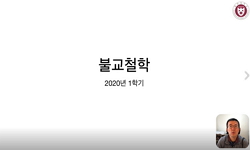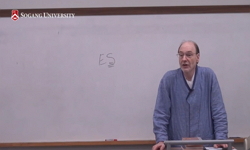고려 말 목은 이색은 위대한 문인이며 정치가였다. 동시에 한국의 대표적 茶人이기도 하다. 그는 학자이며 대 사상가로서 차를 사랑하였으나, 차 정신을 정립한 다인으로서는 조명을 받지 ...
http://chineseinput.net/에서 pinyin(병음)방식으로 중국어를 변환할 수 있습니다.
변환된 중국어를 복사하여 사용하시면 됩니다.
- 中文 을 입력하시려면 zhongwen을 입력하시고 space를누르시면됩니다.
- 北京 을 입력하시려면 beijing을 입력하시고 space를 누르시면 됩니다.
https://www.riss.kr/link?id=A76523345
-
저자
강승희 (원광대학교 예다학)
- 발행기관
- 학술지명
- 권호사항
-
발행연도
2007
-
작성언어
Korean
-
주제어
차 ; 성리학 ; 불교 ; 신선 ; 수신 ; 무사 ; 무욕 ; Lee-Sack ; confucianism ; buddhism ; without wickedness ; moral training ; without desire
-
KDC
380
-
자료형태
학술저널
-
수록면
63-85(23쪽)
- 제공처
-
0
상세조회 -
0
다운로드
부가정보
국문 초록 (Abstract)
고려 말 목은 이색은 위대한 문인이며 정치가였다. 동시에 한국의 대표적 茶人이기도 하다. 그는 학자이며 대 사상가로서 차를 사랑하였으나, 차 정신을 정립한 다인으로서는 조명을 받지 못했다. 그의 시대는 종교적으로 불교였으며, 학문적으로는 성리학의 도입과 성숙기였다. 그는 舊체제를 옹호함으로 인한 정치적인 실패를 자연주의적 탐미로서 극복하려 하였다. 고려 말 정치상황의 소용돌이 속에서 그의 삶과 정신은 그의 다시 속에 잘 나타나 있으며, 그의 다시를 살펴보면 그는 차를 통하여 修身을 하였고, 차를 통하여 삿됨을 멀리하였으며(無邪), 차를 통하여 세속에 대한 욕심을 버렸음(無慾)을 알 수 있다. 따라서 우리나라 차 정신을 찾는데 이색의 차 정신이 공헌하는 바는 매우 크다 하겠다.
다국어 초록 (Multilingual Abstract)
Lee-Sack's thought is a mixing of Confucianism, Buddhism and Taoism So his thought of tea can also be understood in the context of those. Even though he was a great confucian scholar, it can not be denied that he liked honorable monks, and that he env...
Lee-Sack's thought is a mixing of Confucianism, Buddhism and Taoism So his thought of tea can also be understood in the context of those. Even though he was a great confucian scholar, it can not be denied that he liked honorable monks, and that he envied a Taoist hermit. His many poems, especially tea-poems show these. This thesis focused to take the evidences that he was a man of tea.
In regard with confucianism, he believed dualism of reason(理) and energy(氣). It is that reason and energy are dualistic, and reason takes precedence over the energy. Lee Sack thought that a human being and all creations principally have the unchangeable nature(性) of reason. He preferred a man's moral training to a reform of social system Lee Sack had an affirmative attitude to the monks, even though he attacked the apostasy of buddhism in those days. He thought the essence of buddhism desirable and he respected high priests. In his later years he was fascinated with Taoism, so he yearned Taoist hermit and being free from conventionality.
His thought of tea is expressed in this ground. These are moral training(修身), without wickedness(無邪), without desire(無慾) These are simply 'tea-meditation is the same'(茶禪一如) philosophy. Through this study we can know that Lee Sack was really a man of tea.
목차 (Table of Contents)
- Ⅰ. 서론
- Ⅱ. 牧隱 李穡의 생애
- Ⅲ. 茶詩속에 나타난 牧隱 이색의 차 정신
- Ⅳ. 결론
- Ⅰ. 서론
- Ⅱ. 牧隱 李穡의 생애
- Ⅲ. 茶詩속에 나타난 牧隱 이색의 차 정신
- Ⅳ. 결론
동일학술지(권/호) 다른 논문
-
- 원광대학교 동양학연구소
- 류성태
- 2007
-
- 원광대학교 동양학연구소
- 조옥경
- 2007
-
- 원광대학교 동양학연구소
- 허미경
- 2007
-
- 원광대학교 동양학연구소
- 유영준
- 2007




 RISS
RISS






